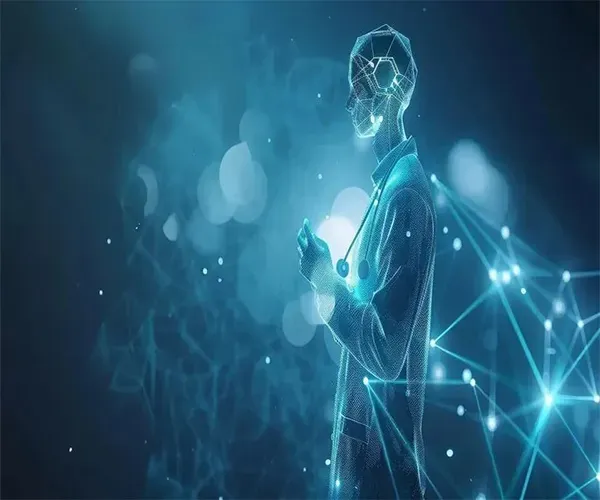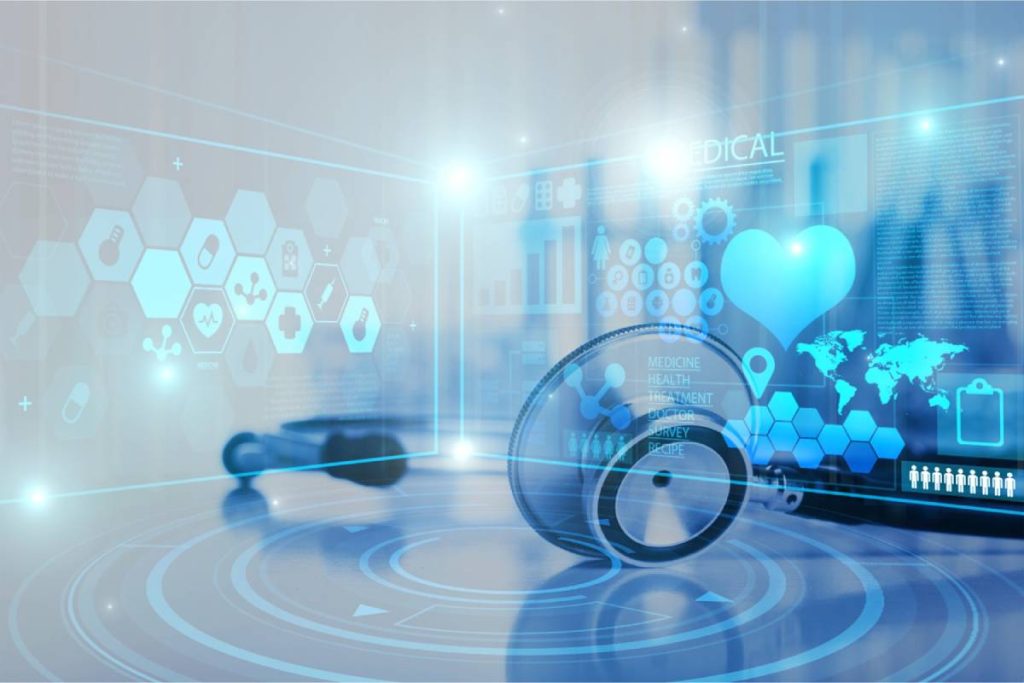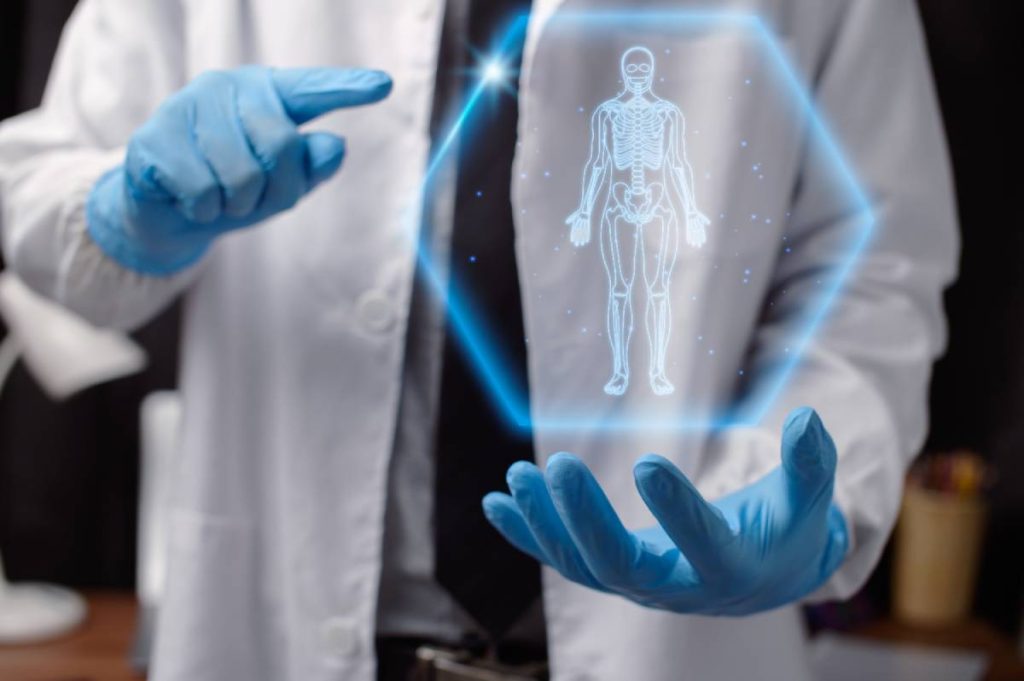ChatGPT cancer diagnosis has emerged as a significant topic in the realm of AI health diagnosis, exemplifying how artificial intelligence can play a vital role in identifying health conditions that may be overlooked by medical professionals. In a striking case, Lauren Bannon credits this AI chatbot for recognizing her symptoms as indicative of Hashimoto’s disease, a condition that ultimately led to her cancer diagnosis. The intersection of technology and patient advocacy is becoming increasingly important, especially as individuals like Bannon turn to artificial intelligence in medicine for clarity and guidance regarding their health. With autoimmune disorders often misdiagnosed or dismissed, the utilization of modern AI tools offers a novel approach to patient-care dynamics. This highlights not just the potential of AI but also the importance of collaboration between technology and human expertise in ensuring timely and accurate diagnoses in healthcare.
The role of technology in medical diagnosis has taken a remarkable turn with the advent of AI tools like ChatGPT, redefining how we approach health issues. Instead of relying solely on traditional medical assessments, individuals are now seeking insights from digital platforms that analyze symptoms and suggest possible conditions. This practice has raised awareness about various health disorders, including autoimmune diseases, which can frequently lead to misdiagnosis or oversight in clinical settings. By employing such innovative diagnostic methods, patients can empower themselves through informed health decisions while maintaining essential communication with healthcare providers. The synergy between human judgment and artificial intelligence is paving the way for a new era in personalized medicine.
ChatGPT Cancer Diagnosis: A Life-Saving AI Intervention
Lauren Bannon’s journey to a cancer diagnosis showcases the potential of AI health diagnosis tools like ChatGPT. Initially, Bannon faced a string of misdiagnoses, with healthcare providers attributing her symptoms to rheumatoid arthritis and later to acid reflux. However, it was only after engaging with ChatGPT that she received a suggestion pointing to Hashimoto’s disease, an autoimmune condition that can lead to the thyroid issues. This interaction highlights how innovative artificial intelligence in medicine can empower patients to advocate for their own health, particularly in cases where traditional medical advice may overlook critical symptoms.
The role of ChatGPT in Bannon’s diagnosis underscores the importance of patient advocacy and the integration of AI tools in healthcare. While doctors play a vital role, the collaboration between patients and AI can usher in a new paradigm of medical care. Such interfaces not only help patients articulate their symptoms more clearly but also prompt healthcare professionals to consider alternative diagnoses that might be missed otherwise. This case exemplifies how AI can serve as a supplemental tool, enhancing diagnostic accuracy and ultimately saving lives.
Understanding Hashimoto’s Disease: The Autoimmune Connection
Hashimoto’s disease is a significant autoimmune disorder that often evades diagnosis due to its subtle symptoms, which can be misattributed to other health issues. In Bannon’s case, the early signs manifested as difficulty in bending her fingers, a common yet easily overlooked symptom. This highlights a pressing need for heightened awareness among both healthcare providers and patients concerning autoimmune disorders, as early intervention is crucial in mitigating long-term effects. Understanding the unique presentation of Hashimoto’s can empower more individuals to seek the appropriate tests and diagnoses.
Furthermore, the connection between Hashimoto’s disease and more severe health complications, including thyroid cancer, cannot be understated. Individuals with autoimmune conditions are often at higher risk for developing other health issues over time. Bannon’s story emphasizes the need for a proactive approach in monitoring autoimmune diseases and their potential implications. As discussions around AI health diagnosis continue to evolve, increasing knowledge and support for patients facing such challenges will be paramount.
Harnessing the Power of Artificial Intelligence in Medicine: A Call for Collaboration and Awareness
The advent of artificial intelligence in medicine marks a transformative shift in how healthcare professionals and patients interact. AI tools like ChatGPT can analyze vast datasets and provide insights that might escape the human eye. In Bannon’s experience, the AI not only generated a critical diagnostic avenue but also facilitated clearer discussions between her and her healthcare providers. This case serves as an encouraging example of how technology can complement traditional medical practices, ultimately enriching patient experiences and outcomes.
However, it is important to acknowledge that while AI can offer valuable information, it should not supplant the expertise of medical professionals. Instead, a collaborative framework where AI supports medical practitioners in delivering effective care is vital. Encouraging communication between patients, their doctors, and AI tools fosters an environment where health issues are addressed holistically. This partnership can lead to improved diagnosis and treatment, particularly in elusive cases often associated with autoimmune disorders.
Patient Advocacy in the Age of AI: Navigating Health Challenges
Lauren Bannon’s story serves as a powerful reminder of the importance of patient advocacy, particularly in the context of health challenges exacerbated by misdiagnosis or overlooked symptoms. In an era where AI tools like ChatGPT are becoming more prevalent, patients are encouraged to take an active role in their healthcare journeys. Using AI as a resource for information and insight empowers patients to advocate for themselves, ensuring their voices are heard in consultation rooms. This proactive approach can lead to more accurate and timely diagnoses, particularly for conditions that may not present as classically understood.
Moreover, Bannon’s experience underscores the need for ongoing education about the use of AI in health diagnosis among both patients and healthcare providers. As AI continues to evolve, understanding its capabilities and limitations becomes crucial. Patients can benefit from recognizing how to effectively utilize these tools while maintaining an open dialogue with their doctors. This balance is key to fostering a healthcare environment that values both traditional expertise and the insights offered by innovative technologies.
The Future of Diagnosis: AI’s Role in Identifying Autoimmune Disorders
The integration of AI tools in diagnosing autoimmune disorders stands to revolutionize patient care and outcomes. Autoimmune conditions like Hashimoto’s disease often require keen observation and a thorough understanding of multiple symptoms, which can be challenging for healthcare providers under time constraints. AI can assist in streamlining diagnostic processes by analyzing patterns in symptoms that may not be immediately obvious. Bannon’s case illustrates how AI can play a pivotal role in identifying complex health issues, potentially leading to earlier interventions that can significantly affect patient prognosis.
Looking toward the future, it is crucial to ensure that the collaboration between AI technology and healthcare professionals deepens. By embracing AI health diagnosis, medical fields can benefit from enhanced accuracy in their evaluations of symptoms and timely interventions for patients. Continuous research and development in the AI domain can lead to more refined diagnostic tools, which could significantly improve the identification of autoimmune disorders, ultimately benefiting countless individuals suffering in silence.
Navigating Your Health Journey: Responsible Use of AI Tools
As patients increasingly turn to AI tools for guidance on health-related issues, understanding how to navigate this digital landscape responsibly becomes increasingly essential. Lauren Bannon’s experience emphasizes the significance of not only utilizing AI for initial insights but also remaining engaged with healthcare professionals throughout the diagnosis and treatment processes. AI can be a powerful ally, but its best use comes from a foundation of trust and communication between patients and their doctors.
Furthermore, patients should educate themselves about the limitations of AI-based diagnoses. Recognizing that these tools are designed to augment, rather than replace, professional medical opinions is vital. Continuous advocacy and open communication about the findings suggested by AI can lead to a more thorough exploration of health concerns. Empowering oneself with knowledge and carefully balancing AI insights with medical expertise can create pathways for better health outcomes.
Hashimoto’s Disease and Cancer: What Every Patient Should Know
Understanding the relationship between Hashimoto’s disease and the potential risk for thyroid cancer is crucial for individuals diagnosed with this autoimmune disorder. Hashimoto’s can lead to thyroid dysfunction, leading to a higher likelihood of abnormal growths in the thyroid, including cancerous lesions. Patients diagnosed with Hashimoto’s should have regular monitoring for any changes, as early detection is key in managing treatment effectively and increasing survival rates.
Education surrounding the signs and symptoms of thyroid complications should accompany a diagnosis of Hashimoto’s. Bannon’s case reveals the importance of remaining vigilant and proactive with health checks and screenings. Patients should not hesitate to demand additional tests or seek second opinions if they feel their concerns are not being adequately addressed. This proactive stance can play a significant role in the timely detection and management of serious health conditions like thyroid cancer.
The Role of Medical Professionals in the Age of AI Diagnosis
While AI tools like ChatGPT can provide valuable information and support for patients, the role of medical professionals remains irreplaceable. Doctors and healthcare providers possess years of training and experience necessary for interpreting complex medical conditions accurately. They can contextualize AI-generated insights within a patient’s broader health profile, accounting for factors that a machine might overlook. This synergy highlights the importance of blending human expertise with technological advancements to enhance patient care.
Moreover, fostering a collaborative partnership between patients and their healthcare providers can yield significant benefits. Doctors should encourage patients to use AI tools as supplementary resources in their diagnostic journey while ensuring patients understand that these tools are not definitive nor a substitute for professional medical advice. Empowering patients with knowledge while also providing comprehensive care remains at the forefront of healthcare excellence in the evolving landscape of AI assistance.
Exploring Autoimmune Disorders: The Importance of Awareness and Education
Autoimmune disorders like Hashimoto’s disease are often underrepresented in discussions surrounding health awareness. Increased education about these conditions is paramount, not only for effective diagnosis and treatment but also for fostering empathy and understanding among both healthcare providers and the general public. Bannon’s story illustrates how certain symptoms may lead to misdiagnosis, highlighting the need for ongoing education about autoimmune conditions for both patients and physicians.
Awareness campaigns could significantly improve recognition of autoimmune disorders among healthcare professionals, enabling them to provide better support and identification of symptoms. Bannon’s experience encourages individuals to advocate for comprehensive autoimmune testing when experiencing unexplained health issues, driving a push towards increased research and dialogue in this area. Promoting awareness and education of autoimmune disorders can lead to better health outcomes and substantially improve patients’ quality of life.
Frequently Asked Questions
How did ChatGPT help with a cancer diagnosis related to Hashimoto’s disease?
A mother named Lauren Bannon attributed her life-saving cancer diagnosis to ChatGPT. Initially, she experienced symptoms that doctors linked to rheumatoid arthritis, but after using ChatGPT for assistance, she received a suggestion to test for Hashimoto’s disease, an autoimmune disorder that can influence thyroid health and potentially lead to cancer.
Can ChatGPT accurately diagnose conditions like Hashimoto’s disease and assist in cancer detection?
What Lauren Bannon’s case demonstrates is that ChatGPT can provide insights that may prompt further medical investigation. While AI tools like ChatGPT can suggest potential conditions like Hashimoto’s disease, it is crucial to remember they should complement, not replace, professional medical advice.
What role does AI play in health diagnosis, and how can it assist in autoimmune disorders and cancer detection?
AI, such as ChatGPT, serves as a supportive tool in health diagnosis by highlighting potential conditions like autoimmune disorders, which can lead to complications such as cancer. However, Dr. Harvey Castro emphasizes the importance of human expertise in validating these AI insights.
What precautions should patients take when using ChatGPT for health concerns that might lead to cancer?
Patients should use ChatGPT as an informational resource while prioritizing discussions with their healthcare providers. It is important to communicate any AI-generated concerns, such as potential autoimmune disorders or cancer signs, to ensure they receive appropriate testing and care.
How can ChatGPT improve patient advocacy in diagnosing serious conditions like cancer?
Patient advocacy is enhanced through the use of AI tools like ChatGPT, as they empower individuals to seek further investigation based on symptom analysis. In Lauren Bannon’s case, her insistence on checking for Hashimoto’s disease, prompted by ChatGPT, ultimately led to an early cancer diagnosis and timely medical intervention.
| Key Point | Details |
|---|---|
| Patient Background | Lauren Bannon, a 40-year-old mother, initially experienced symptoms like difficulty bending fingers. |
| Initial Diagnosis | Doctors initially diagnosed her with rheumatoid arthritis despite negative tests. |
| Subsequent Symptoms | Afterward, she suffered stomach pains and lost significant weight, attributed to acid reflux. |
| ChatGPT’s Recommendation | Bannon used ChatGPT, which suggested testing for Hashimoto’s disease. |
| Correct Diagnosis | She insisted on testing, and it revealed Hashimoto’s disease, leading to cancer discovery. |
| Surgery and Monitoring | Had surgery for thyroid and lymph nodes, now under monitoring for cancer recurrence. |
| Expert Opinion | Dr. Harvey Castro noted that AI tools like ChatGPT should support, not replace, human doctors. |
| Encouragement for Others | Bannon advocates the responsible use of AI in health inquiries and communication with doctors. |
Summary
ChatGPT cancer diagnosis has proven to be a game-changer for individuals seeking insight into their health concerns. In the case of Lauren Bannon, the AI chatbot helped identify a serious condition that was initially overlooked by medical professionals, showcasing the potential of AI tools in healthcare. While Bannon’s experience highlights the importance of seeking help, it also emphasizes the necessity of collaborating with healthcare professionals. As AI continues to evolve in the medical field, it is crucial to merge technology with human expertise to enhance patient outcomes and ensure accurate diagnoses.



